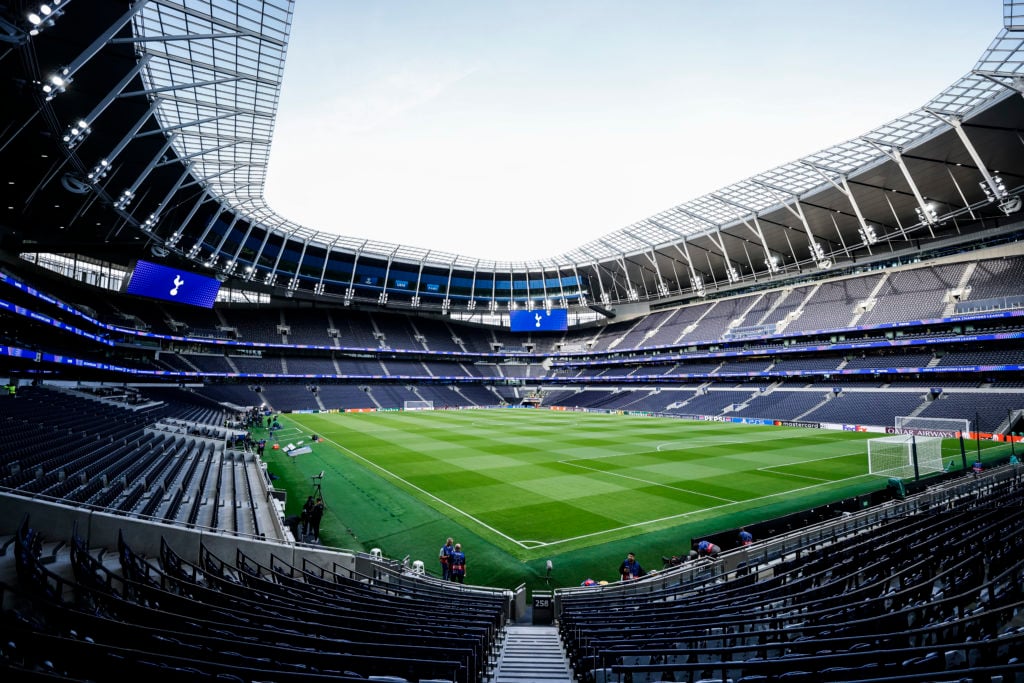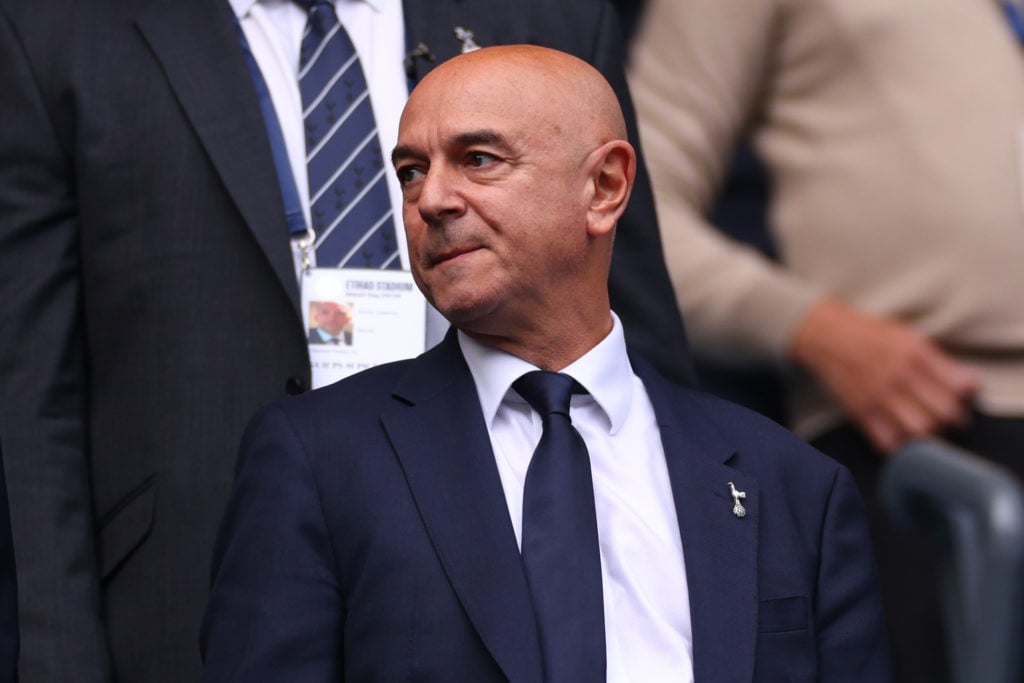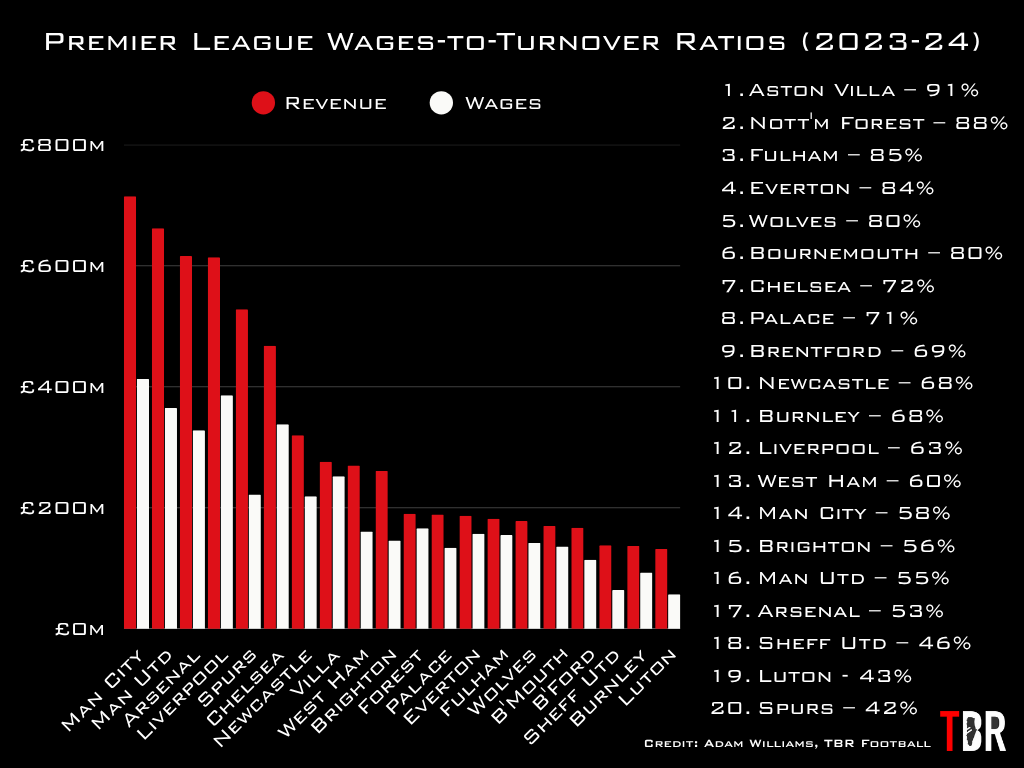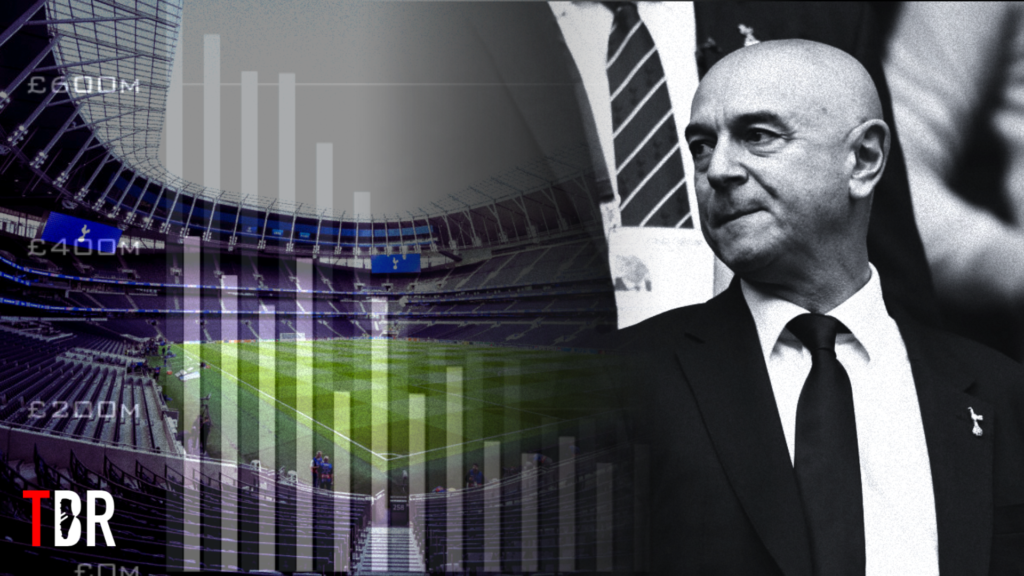Tottenham have been warned about the dangers of pivoting too hard and too fast away from the regime set up by former chairman Daniel Levy.
In a shock development, Levy vacated his position at Spurs earlier this month after nearly a quarter of a century with the club. He remains a shareholder, via parent company ENIC.
There have been vague murmurings of a £100m investment from the Lewis family in the weeks since, though the only cash injection to date has been a £90m loan from Australian investment bank Macquarie.


A naming rights deal for the Tottenham Hotspur Stadium with an unnamed Saudi entity was recently said to be close too, but – after several false dawns in this area in recent years – nothing has materialised.
So far then, life after Daniel Levy has been more of the same, at least in terms of how the club is funded.
 Photo by Dennis Agyeman / Europa Press via Getty Images
Photo by Dennis Agyeman / Europa Press via Getty Images
The owners haven’t put their hands in their pockets, instead relying on external debt and the club’s own admittedly huge revenues to finance day-to-day activities, like paying wages and transfer instalments.
But that said, there is clearly a major shake-up in progress.
Thomas Frank joined as manager in the summer and has been well received. Even after dropping points at Brighton at the weekend, his side are 3rd in the Premier League table.
But while his arrival is the most front-facing, the Dane is far from the only new addition.
PositionNameKey background infoNon-Executive ChairmanPeter Charrington26 years at Citigroup (Global CEO of Private Banking 2014–2020), Senior Partner at Nexus Luxury Collection, Senior Advisor to One Equity Partners, board member at Amey, Acteon, Avaloq AG, Saranac Partners.Chief Executive OfficerVinai Venkatesham OBEFormer Arsenal FC CEO, experience with London 2012 Olympics, Deloitte (Management Accountant), served on Wembley Stadium Advisory Board, BOA, ECA, UC3 JV, various Premier League/FA/UEFA committees.Operations and Finance DirectorMatthew CollecottGroup Ops & Finance Director of ENIC since 1998, Fellow of ICAEW, ex-Price Waterhouse, involved with Slavia Prague, AEK Athens, Vicenza Calcio, trustee of Tottenham Hotspur Foundation.Lead Independent DirectorJonathan TurnerOxford PPE graduate, co-founder and ex-President of Qatalyst Partners, 24+ years investment banking (Credit Suisse, DLJ, Citibank), UK Gov advisor on Technology & Finance.Tottenham’s board of directors
Before Levy’s consigliere Donna-Maria Cullen’s exit in June, Vinai Venkatesham was appointed CEO and Peter Charrington joined the board. Post-Levy, Charrington has taken over as non-executive chairman.
And a spate of subsequent changes at executive level suggest that ENIC – who have also distanced themselves from a full takeover, though not a minority investment – want to set a new tone in N17.
Kieran Maguire Spurs warned about boardroom revolution
Last week, Spurs named Kate Miller their new chief communications officer and Adam Gardiner as their new chief marketing officer.
Speaking exclusively to TBR Football, Liverpool University football finance lecturer warned Spurs against enacting too much change all at once, citing Manchester United after Sir Alex Ferguson and David Gill.
United have spent £4.6bn on wages and amortised transfer fees since Ferguson and Gill left the club.
“There is a lot of unpicking to do before Tottenham can move past the Daniel Levy way,” Maguire said.
“I am always slightly concerned that when you get rid of a chief executive and your man on the shop floor in the manager as well, that can create a void.
 Photo by Marc Atkins/Getty Images
Photo by Marc Atkins/Getty Images
“You only have to look at what happened at Man United – it wasn’t just the departure of Sir Alex Ferguson; it was the fact that David Gill left at the same time.
“Also, as far as Ferguson was concerned, he was somewhat similar to Levy in that he ran the club as a personal fiefdom as far as the footballing side was concerned. There are similarities there.
“He was very ably supported by Gill. When they left, Man United were a rudderless ship.
“It might be a bit different at Spurs because they have had a much more rotational policy as far as the manager was concerned. But at board level, they will perhaps find that they underestimate just how many things that Levy was overseeing.”
Spurs have sixth-most expensive squad in the world, despite ENIC narrative
Despite perceptions that ENIC are frugal owners, new data from CIES Football Observatory shows that Spurs have the sixth-most expensive squad in world football, ahead of the likes of Real Madrid and Paris Saint-Germain.
ClubTotal squad costChelsea FC (ENG)£1.1bnManchester City (ENG)£958.8mManchester United (ENG)£910.4mLiverpool FC (ENG)£905.2mArsenal FC (ENG)£850.9mTottenham Hotspur (ENG)£827.9mParis St-Germain (FRA)£742.0mReal Madrid (ESP)£725.9mNewcastle United (ENG)£693.6mAtlético Madrid (ESP)£486.2m
Spurs spent around £185m this summer, taking the total expense of their squad to just shy of £828m.
However, where narratives around ENIC’s conservative approach are accurate is the wage bill.
Spurs fell out of the ‘Big Six’ in terms of the wages they pay players in 2023-24, the last published financial year, surpassed by Aston Villa.
In 2024-25, they likely were outspent by Villa again, as well as potentially Newcastle. We will have to wait until spring next year to see the financial results.
And famously, their wages-to-turnover ratio is the lowest in the Premier League.
 Wages-to-turnover ratio
Wages-to-turnover ratio
Credit: Adam Williams/TBR Football/GRV Media
ENIC’s briefings to the press since the Levy news suggest that could change soon.
But the proof of the pudding will be in the eating.

